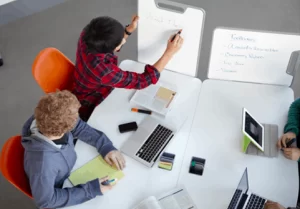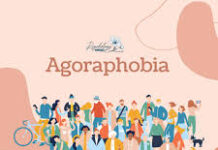Introduction
Although education is essential in forming people and cultures, not all educational opportunities are created equal. Outside of the walls of typical classrooms, there are educational opportunities that are immersive, engaging, and transforming where some of the most significant learning takes place. These encounters offer practical chances for exploration, development, and discovery that go beyond textbooks and lectures. This blog article will examine the tremendous effects education can have on people and why it is becoming more and more important in today’s society that is undergoing rapid change. These experiences, such as studying abroad, fieldwork, workshops, or community service projects, broaden horizons, promote personal growth, and cultivate critical skills that are crucial for success in the twenty-first century.
Broadening Perspectives
By exposing us to different cultures, ideas, and ways of thinking, educational experiences have the capacity to extend our perspectives. One way to foster a global mentality and cross-cultural competency is to study abroad, which immerses pupils in a foreign cultural setting. Students acquire empathy and tolerance as well as a greater grasp of global concerns when they live and learn among people from different backgrounds. Similar to this, taking part in international workshops, conferences, or programmes for cultural exchange encourages networking and collaboration with people from many nations, which promotes a broader perspective and a more inclusive worldview.
Personal Development
Learning experiences frequently require us to leave our comfort zones and take on unfamiliar difficulties. The act of pushing boundaries and overcoming challenges promotes personal growth. For instance, fieldwork enables students to put their theoretical knowledge to use in practical situations, advancing their problem-solving and critical thinking abilities. Additionally, it fosters resilience, self-assurance, and flexibility. Additionally, participating in volunteer work or community service projects exposes people to societal challenges and fosters a sense of compassion and social responsibility. Such encounters strengthen one’s morals, ethics, and character, transforming people into compassionate and responsible citizens of the world.
Acquiring Practical Skills
Traditional education gives people academic information, but educational experiences give people the chance to develop practical abilities that are highly appreciated in the workplace. Workshops, internships, and apprenticeships provide hands-on training that enables participants to get practical experience and build skills relevant to their sector. By bridging the gap between academic knowledge and real-world application, these experiences help people get started right away in their chosen industries. Additionally, taking part in group projects and team-building exercises helps develop leadership, teamwork, and effective communication skills—all of which are crucial in today’s linked and collaborative work environments.
Fostering Lifelong Learning
Learning passions are cultivated through educational experiences that go beyond formal education. People acquire the joy of discovery, curiosity, and ongoing personal improvement through experiential learning. These encounters foster a desire for lifelong learning by inspiring people to learn new things, investigate a variety of topics, and keep up with the most recent advancements in their chosen disciplines. In a world that is changing quickly and where information and skills are soon rendered obsolete, this attitude towards lifelong learning is priceless.
Cultivating Creativity and Innovation
Learning opportunities frequently promote innovation and creativity. People are given the flexibility to think outside the box and explore new ideas through participating in practical projects, problem-solving exercises, and entrepreneurial activities. These encounters encourage imaginative thinking, original thinking, and an entrepreneurial mindset. Educational experiences offer a fertile environment for people to unleash their creative potential and produce original solutions to real-world challenges, whether it’s developing prototypes, taking part in hackathons, or attending design thinking seminars. Innovation and creativity are important for human development as well as for advancing social, economic, and technical advancement.
Building Cultural Intelligence
Cultural intelligence is gaining importance in today’s linked society. Cultural intelligence can be developed through educational experiences that include cross-cultural contact and absorption in various situations. Individuals gain the ability to negotiate cultural differences, comprehend other viewpoints, and communicate effectively across cultures through these experiences. In a globalised workforce and in forging deep connections with people from different origins, it is essential to be able to adjust to varied cultural conventions, beliefs, and communication styles. Cultural intelligence can be considerably improved and a more inclusive society can be created through educational experiences like overseas internships, cultural exchange programmes, or even participation in multicultural groups and events on campus.
Nurturing Environmental Consciousness
The development of environmental consciousness and the promotion of sustainable practises can both be greatly aided by educational experiences. People are exposed to the beauty and fragility of the natural world through field trips to natural environments, ecological research endeavours, and environmental conservation efforts. These encounters cultivate a sense of obligation to the environment and motivate people to take action in order to preserve and protect it. Furthermore, people are educated about the value of sustainable living and inspired to make ecologically responsible decisions by educational experiences that emphasise sustainability, renewable energy, and eco-friendly practises. These encounters enable people to become stewards of the planet by imparting a profound respect for nature and an understanding of the interdependence between humans and the environment.
Conclusion
Beyond the four walls of the traditional classroom, educational experiences provide transformative chances for enlarging perspectives, personal growth, acquiring useful skills, fostering a love of lifelong learning, encouraging creativity and innovation, fostering cultural intelligence, and fostering environmental consciousness. These experiences give people the tools, knowledge, and mindset necessary to succeed in a variety of environments and make a significant contribution to society, preparing them for the difficulties of the modern world. People can reach their full potential, get a better awareness of the world around them, and become agents of change by actively seeking out and accepting educational opportunities. The strength of educational experiences resides in their capacity to mould people into all-around, flexible, and compassionate people who are prepared to take on the challenging problems of the twenty-first century.
































